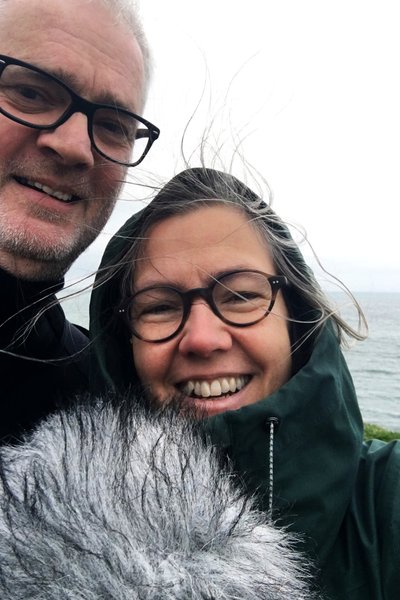Ulrike Haage (born 1957 in Kassel) has been involved with radio plays for more than 25 years - as a composer, director, scriptwriter and producer. After studying at the University of Music and Performing Arts in Hamburg, Haage taught orchestral conducting and improvisation there for several years. She became known to a broad public as a musician when she joined the band "Rainbirds".
Since 1994, Ulrike Haage has been producing radio plays for various German public broadcasting stations such as BR, Deutschlandradio, SWR and HR. Her most successful works include "With our way of life, it is very pleasant to be invited to a party well in advance" (1999), "Fasten a thing" (2003) and the two radio plays broadcasted in 2020: "Language, my star. Hearing Hölderlin," about the late work of the German poet Friedrich Hölderlin and "Hyperbolic bodies" about the two mathematicians Sofia Kovalevskaja and Maryam Mirzakhani.
The medium of film is increasingly becoming part of Ulrike Haage's work. For example, she provided the compositions for the documentaries "Common bleak", "Meret Oppenheim. A surrealist on her own paths" and "Sea Part" by Volker Koepp, for the documentary "Berlin 1945 - Diary of a big city" by Volker Heise (broadcast in 2020), and for Doris Dörrie's highly acclaimed feature film "Greetings from Fukushima".
Haage has received awards for her work, including the "Hörspielpreis der Kriegsblinden", the "Albert-Mangelsdorff-Prize" (German Jazz Prize), the "Special Music Prize of the Nordic Film Days" and the "Gema Music Author Prize".










